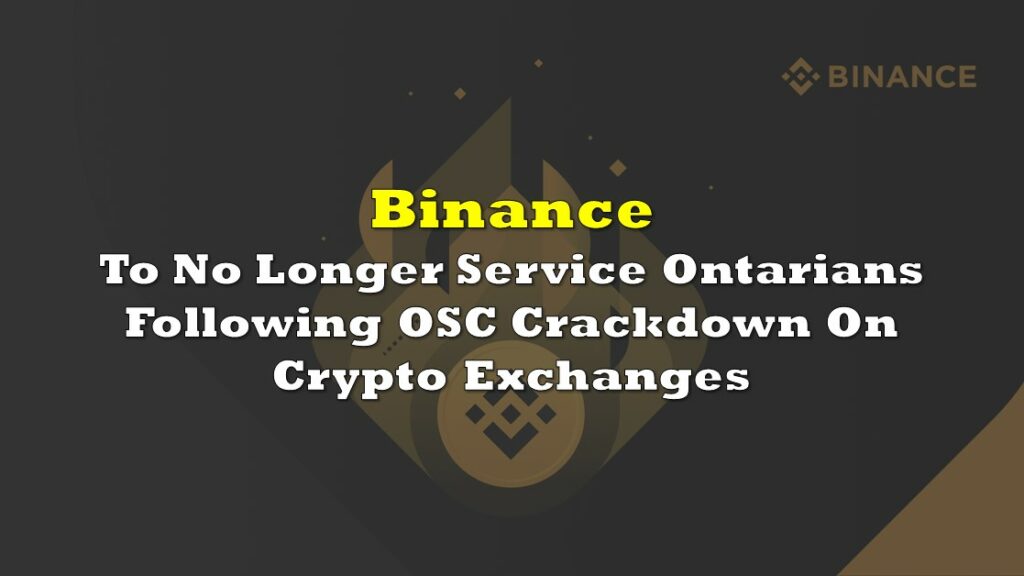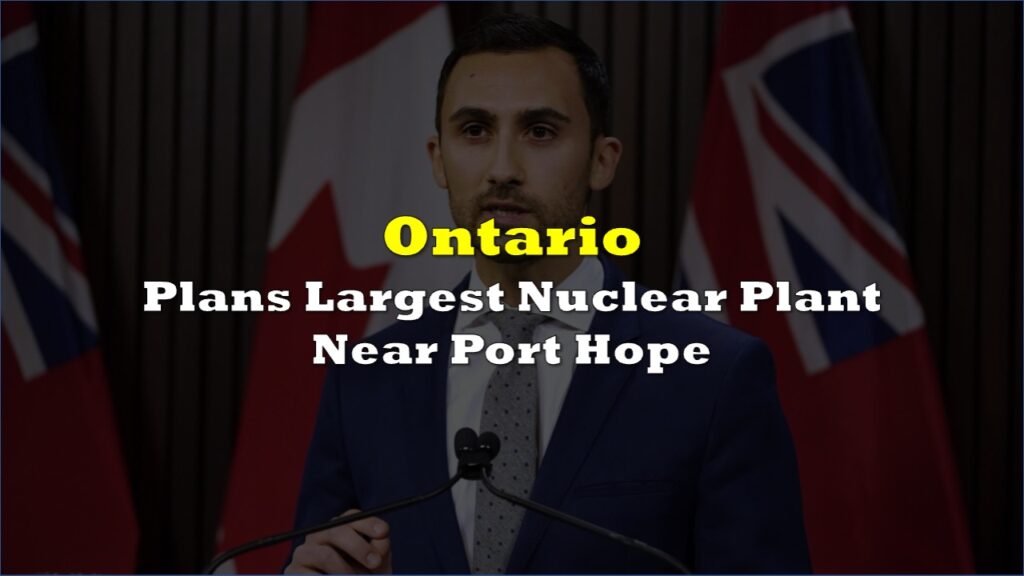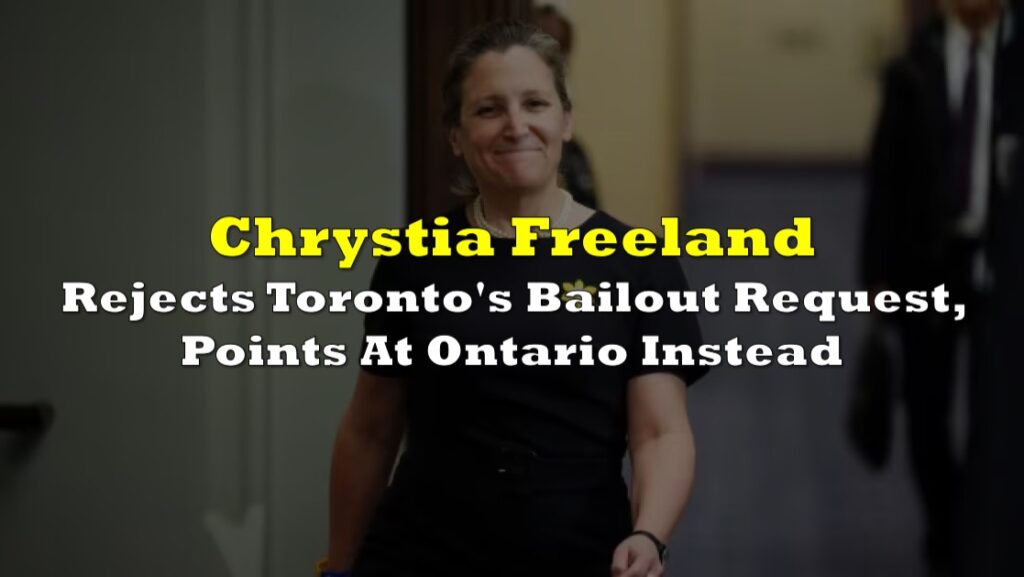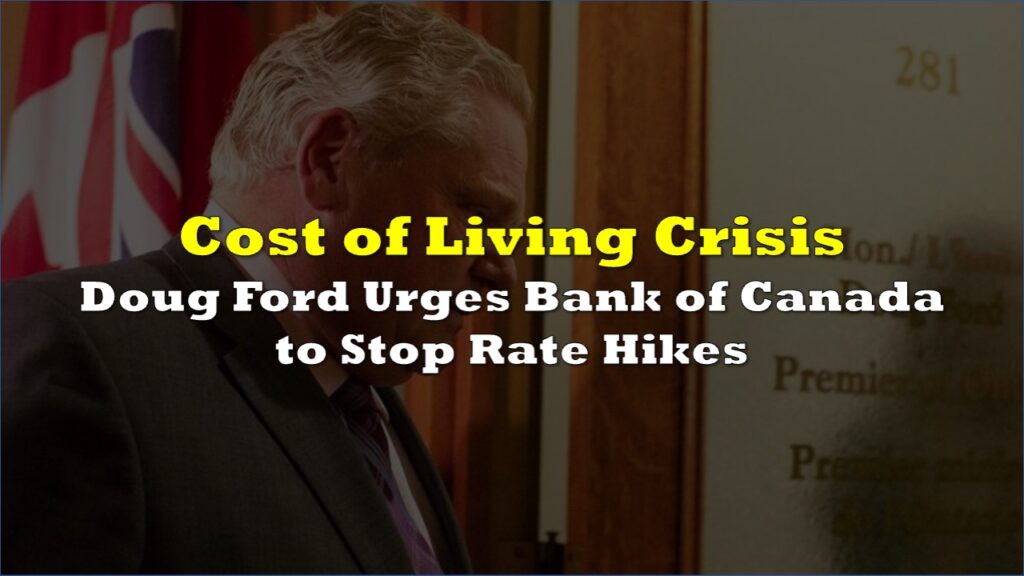Survey Says Six In Ten Ontarians Blame Doug Ford, Provincial Gov’t For Education Workers’ Strike
Ontario Premier Doug Ford on Monday declared that his government is willing to repeal the back-to-work legislation in exchange for the Canadian Union of Public Employees (CUPE) agreeing to halt their ongoing strike. Alongside the bill, he also promises to pull back his invoking of the notwithstanding clause which aimed to protect the aforementioned legislation from juridical review.
“As a gesture of good faith, our government is willing to rescind the [back-to-work] legislation, we’re willing to rescind Section 33, but only if CUPE agrees to show a similar gesture of good faith by stopping their strike,” Ford said in a news conference at Queen’s Park.
The provincial government is at odds with the CUPE over the union’s demand for an 11.7% annual pay increase for 55,000 education assistants, early life educators, custodians, and administrative assistants. However, the premier intended to pass the back-to-work legislation, also called the Keeping Students In Class legislation, imposing a four-year agreement that provided 2.5 percent yearly raises to workers earning less than $43,000 and 1.5 percent increments to all others, which the employee group did not agree to and made them step away from the negotiations.
In his speech, Ford urged the union to go back to the bargaining table as he promised the government is willing “to make a fair deal, one that offers more help for lower income workers.”
“We want a deal that’s fair for students, fair for workers, fair for parents, and fair for taxpayers,” he added. Given the disparity between what the union is demanding and the government’s planned legislation, the ideal deal is unsure to be achieved.
In pushing education workers back to work, the premier intended to invoke the notwithstanding clause, or Section 33 of the country’s charter, to ensure the implementation of the legislation. The controversial clause grants Canadian parliament the authority to override some provisions of the charter for five-year terms when making legislation. If invoked, it precludes any judicial scrutiny of the legislature in dispute for five years, unless it is re-enacted.
Should it be applied in this scenario, the clause will effectively make the legislation unassailable and workers will be forced to go back to their jobs–hence, the ongoing strike.
In explaining his move to invoke the notwithstanding clause, Ford asserted that he has “always respected the right of workers to fair and free bargaining, but CUPE refused to take strike action off the table even if those strikes were illegal.”
“I wanna be clear, we didn’t make the decision to introduce legislation lightly. We were left with no choice,” Ford said.
The Ontario premier reiterated that the government’s goal is unchanged: to keep the students in class. Thus, he shifts and doubles down the burden to the employee union.
“For the sake of our students, CUPE please, accept this offer. Take strike action off the table and let our kids back in class,” Ford pleaded.
An Abacus Data survey recently revealed that more than six out of ten Ontarians blame the provincial government for school closures, while four in ten blame education staff.
The numbers grow when they are drilled down to the parents of schoolgoers and those who closely follow the issue, notching 68% and 69% of those blaming the provincial government led by Premier Doug Ford, respectively.

The survey firm conducted the 1,000-person poll across the province to investigate the public’s early reaction to the labour dispute between the Ontario government and the province’s education workers, who have been holding a strike protesting the back-to-work directive.
In the survey results, half of Ontarians were revealed to believe that using the notwithstanding clause to force education workers back to work is a poor idea, while around one-third believe it is a good idea.

This gives more understanding on why around 71% of Ontarians believe the provincial government should start negotiating a fair deal with education workers to end the strike. One reason the public wants the provincial government to negotiate a fair contract with educators is because almost half believe they are underpaid.


A majority of the Ontarian public also supports other unions holding respective strikes in solidarity with education workers.

The Ford administration is taking a public image hit after the provincial premier ordered education workers back to work. This doesn’t contribute well to Ford’s personal image, which has already shifted from positive to bad after the June provincial election. Today, 29% think positively of the premier (down 10 points), while 45% think negatively (up 5 points).
The Ontarian public also said that the way Ford handled the negotiation with education workers would probably lead to losing some support from the voting public. The citizens feel that the issue and actions surrounding the provincial government would make them “less likely to vote PC” by a two-to-one ratio.
The PC, or Progressive Conservative Party, has been led by Ford since 2018.

But, at this point, it doesn’t look like the issue is hurting the Ford government. If an election were held at the time of the poll, the PCs would comfortably gain a majority and a comfortable reelection.

Information for this briefing was found via CPAC, Abacus Data, and the sources mentioned. The author has no securities or affiliations related to this organization. Not a recommendation to buy or sell. Always do additional research and consult a professional before purchasing a security. The author holds no licenses.









